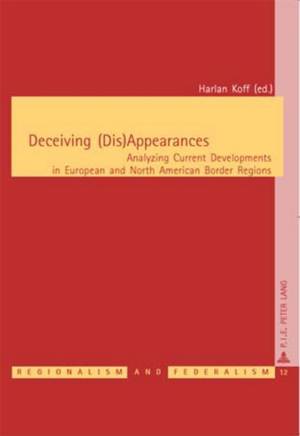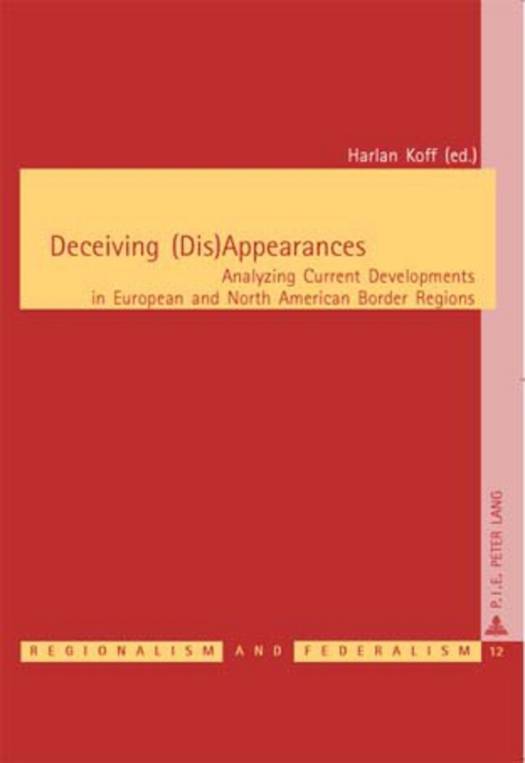
Bedankt voor het vertrouwen het afgelopen jaar! Om jou te bedanken bieden we GRATIS verzending (in België) aan op alles gedurende de hele maand januari.
- Afhalen na 1 uur in een winkel met voorraad
- In januari gratis thuislevering in België
- Ruim aanbod met 7 miljoen producten
Bedankt voor het vertrouwen het afgelopen jaar! Om jou te bedanken bieden we GRATIS verzending (in België) aan op alles gedurende de hele maand januari.
- Afhalen na 1 uur in een winkel met voorraad
- In januari gratis thuislevering in België
- Ruim aanbod met 7 miljoen producten
Zoeken
Deceiving (Dis)Appearances
Analyzing Current Developments in European and North American Border Regions
€ 104,95
+ 209 punten
Omschrijving
The impact of recent shifts in global geopolitics and economic markets has led to the re-conceptualization of national borders. Scholars have shifted their analysis away from the narrow idea of «borders», and moved their attention towards the wider view of «borderlands», «border regions», and «border zones», thus, leading to the conceptual re-definition of border politics. These recent approaches have identified border areas as socially constructed territories that demonstrate many of the characteristics of independent polities. Border communities seem to have come to life, creating a degree of autonomy and separation from central state actors.
While the rich literature in border studies identifies important changes in local political and economic systems, it does not necessarily identify the mechanisms that create these changes: Why has integration occurred in some border regions while others are being reinforced? Why has integration failed in some cases where opportunity structures are positive, while it has succeeded in others saddled with more limited constraints? The essays in this volume address such fundamental questions.
While the rich literature in border studies identifies important changes in local political and economic systems, it does not necessarily identify the mechanisms that create these changes: Why has integration occurred in some border regions while others are being reinforced? Why has integration failed in some cases where opportunity structures are positive, while it has succeeded in others saddled with more limited constraints? The essays in this volume address such fundamental questions.
Specificaties
Betrokkenen
- Uitgeverij:
Inhoud
- Aantal bladzijden:
- 236
- Taal:
- Engels
- Reeks:
- Reeksnummer:
- nr. 12
Eigenschappen
- Productcode (EAN):
- 9789052013695
- Verschijningsdatum:
- 17/12/2007
- Uitvoering:
- Paperback
- Formaat:
- Trade paperback (VS)
- Afmetingen:
- 150 mm x 220 mm
- Gewicht:
- 349 g

Alleen bij Standaard Boekhandel
+ 209 punten op je klantenkaart van Standaard Boekhandel
Beoordelingen
We publiceren alleen reviews die voldoen aan de voorwaarden voor reviews. Bekijk onze voorwaarden voor reviews.








